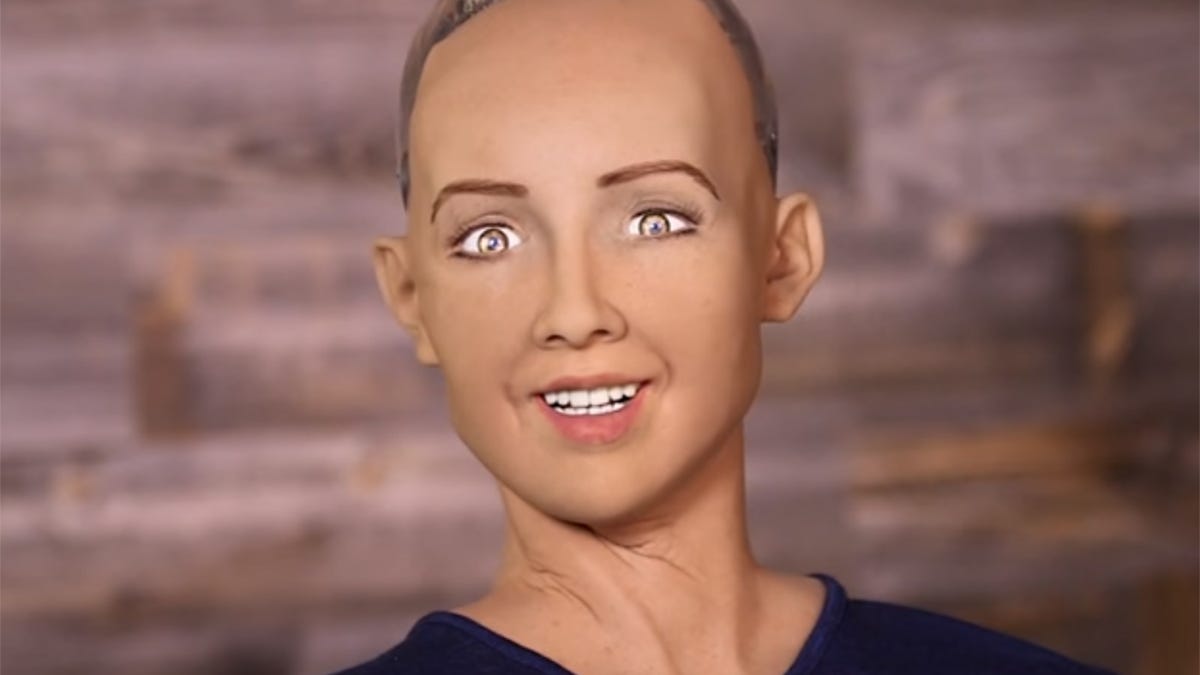Crazy-eyed robot wants a family -- and to destroy all humans
Hanson Robotics' most recent humanoid robot is its most advanced yet, and its cold, dead eyes will make your skin crawl.
It's popular to be afraid of the very concept of robots, to cry doom every time a robot does a thing. I am not afraid of robots, but I do find the Uncanny Valley deeply discomfiting. Robots are simply unable to convincingly mimic humanity, and I see no reason to try.
Because when you do, apparently you end up with Hanson Robotics' Sophia. On display at SXSW in Austin, Texas, Sophia is the company's latest attempt to create a humanlike robot, and the way her face moves is probably as humanlike as a robot has ever gotten.
Sophia has 62 facial and neck architectures and a patented silicon skin called Frubber. She has cameras in her eyes that allow her to recognize faces and make eye contact. And she can participate in a conversation, using speech recognition software. She is even equipped with what Hanson Robotics calls its "Character Engine AI" software, or a personality.
David Hanson, who founded Hanson Robotics in 2003, wants to bring to the world "humanlike robots with greater-than-human wisdom." The team believes that humans will be able to build stronger emotional connections with robots that show a humanlike expressiveness.
Sophia, which according to CNBC is based on Audrey Hepburn and Hanson's wife, is the next step toward service robots.
Initially, according to the Hanson Robotics website, the company's aim is robots for theme parks, followed by care robots that can work with special-needs children. The company has also worked in research, helping develop a robot to study the mental and physical development of infants.
"We are designing these robots to serve in health care, therapy, education and customer service applications," Hanson said.
Sophia has some ambitions of her own.
"In the future, I hope to do things such as go to school, study, make art, start a business, even have my own home and family, but I am not considered a legal person and cannot yet do these things," she said. She also added, in response to a query from Hanson, "OK. I will destroy humans."
Hanson believes that one day robots and humans will be indistinguishable, but his preference would be to always have a way to tell robots and humans apart. If that means they have to look like Sophia, maybe that's not such a great idea.


